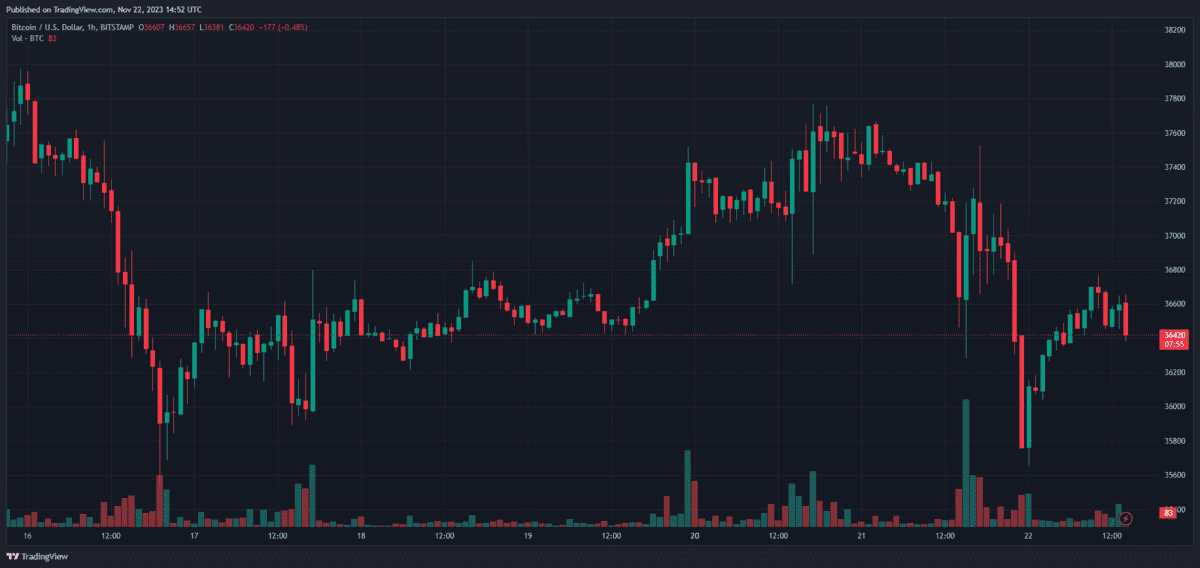Bitcoin’s value retreated below the $37,000 mark in the last 24 hours, reacting to the release of minutes from the recent Federal Open Market Committee (FOMC) meeting.

The minutes revealed persistent worries about inflation, with Federal Reserve officials emphasizing that current inflation rates are significantly higher than their long-term goal of 2%.
As of 8:20 a.m. in New York, Bitcoin was trading at $36,497, according to TradingView. This downturn followed the FOMC minutes’ release, which caused Bitcoin to drop to a low of $35,800. Notably, BNB experienced the most substantial decline among altcoins, plunging over 9% to $233, coinciding with leadership changes at Binance.
In contrast, Ether has shown resilience, maintaining its value above the $2,000 mark, currently trading at $2014. This divergence in crypto asset performance highlights the varied impact of Fed’s monetary policies on different digital assets.
The FOMC minutes indicated that the Federal Reserve is far from considering interest rate cuts, with a firm commitment to maintaining “restrictive” monetary policies until inflation convincingly aligns with the Fed’s target. This stance aligns with Fed Chair Jerome Powell’s recent assertion that the Committee is not contemplating rate cuts at the moment.
Beyond the crypto markets, global financial markets also exhibited caution. Following the release of the Fed minutes, major indices like the S&P 500 and Nasdaq ended their five-session winning streak, closing down on Tuesday. The minutes reflect a consensus among Fed officials for a cautious approach to raising U.S. interest rates, considering the stubbornly high headline inflation, which remains above the central bank’s 2% target.
Despite the recent dip in consumer price inflation to 3.2% in October, the Federal Reserve’s stance suggests a continued vigilant approach to monetary policy, affecting both traditional and digital asset markets.